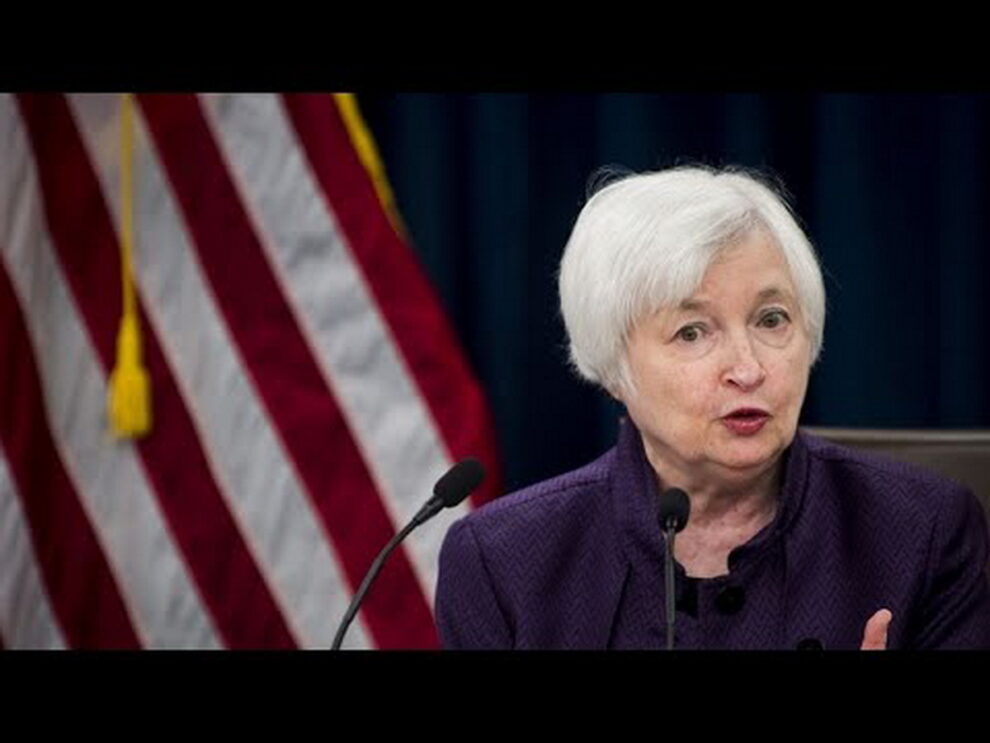After 11 hours of meetings with her counterpart Vice Premier He Lifeng, she raised the issue with Premier Li Qiang as well — moves Washington hopes will bring the concerns to the highest levels of Chinese policymaking.
Yellen said she was especially worried about China’s weak household consumption and business overinvestment, “imbalances” she said were “aggravated by large-scale government support in specific industrial sectors”.
But Beijing has pushed back, with China’s Commerce Minister Wang Wentao this week calling fears of overcapacity “groundless”, according to state media.
Yellen’s push on overcapacity comes even as bilateral ties have stabilised in other areas, with both sides willing to cooperate on issues including climate change, debt restructuring and money laundering.
“I do not want to see the US economic relationship or overall relationship with China deteriorate and fray,” Yellen told reporters, adding that she believes China shares a similar desire to steady relations.
The two countries have also agreed to open channels for further talks on excess capacity.
But Li earlier told Yellen that Washington should view the matter of production capacity “objectively” and from a “market-oriented” perspective, the state-run Xinhua news agency said.
Yellen noted that excess capacity concerns would not be addressed in a week or month, but stressed that doing so would be positive for China’s long-term productivity and growth.
Yellen said she also had “difficult conversations about national security”, warning Chinese officials of the consequences of supporting Russia’s military procurement efforts and using economic tools to address national security concerns.
In particular, she said Washington was committed to having “no surprises” in the use of such tools.
She said the United States has laid out its principles and policymaking process.
But she added: “We would welcome transparency from (China) on its national security actions and greater clarity on where it sees the line between national security and economic issues.”
China has been accused in recent years of slapping import bans on certain products from countries, notably Australia, over political disagreements.
China’s deputy finance minister Liao Min told reporters that “every country has a legitimate need to safeguard its national security,” according to a ministry statement released Monday evening.
“But one should not define the concept of ‘national security’ too broadly and use so-called ‘diversification’ as an excuse, because this affects normal trade and investment between the two countries, the stability of global production and supply chains,” he said.
Beijing had expressed its “serious concerns” to Yellen about the US sanctions, tariffs and restrictions, Liao added.
Yellen also said she discussed the issue of TikTok “briefly” with Chinese counterparts, saying Washington had legitimate concerns when it comes to protecting sensitive personal data.
The United States Congress is threatening to ban the wildly popular video app unless it changes hands.
She noted that China also shares worries over data protection, with many US social apps blocked from the country.
“We would like to find a way forward,” she said.
Yun Sun, senior fellow at think tank the Stimson Center, said that overall, Yellen’s ability to meet with senior Chinese officials to convey US concerns and “probe” China’s reactions is a positive development.
But she cautioned that China is unlikely to give up or change its current growth model and areas of focus because of the United States, unless there are significant consequences, given its economy is “not in the best shape”.
But both sides agreeing to cooperate in technical areas such as tackling money laundering would be helpful to boost confidence in their relations, Sun said.
Among areas of cooperation, Yellen said she has seen progress in recent months over specific debt cases such as Zambia’s.
